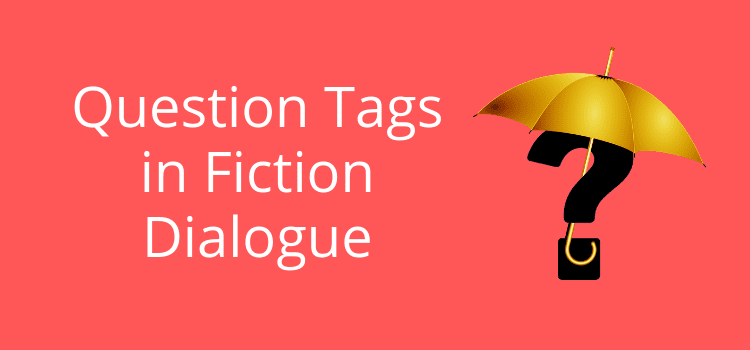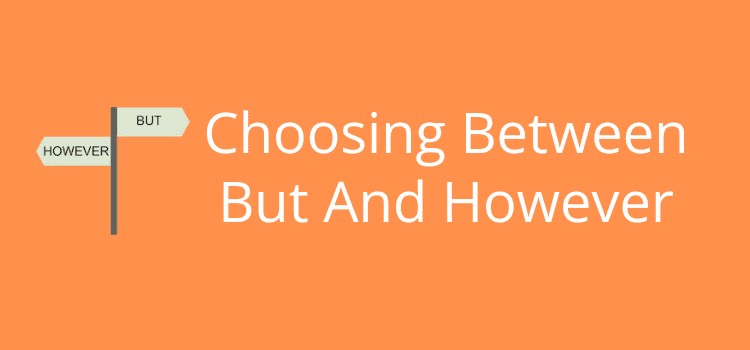
Question tags in dialogue are not always a good idea. They are often called tag questions in American English and are very common in spoken English.
They are easy to form using a positive or negative auxiliary verb to turn a statement into a question.
You live in San Francisco, don’t you?
By using rising or falling intonation when speaking, we can indicate that we are sure or not sure of the answer. But should you use this part of speech in dialogue writing in fiction?
We use question tags to elicit agreement, for emphasis, for a suggestion, or to express uncertainty.
By using intonation, either up or down, we can vary the strength or meaning of a question.
You know what I mean, don’t you? (agreement)
You’ll go to the doctor tomorrow, won’t you? (emphasis)
The situation isn’t good, is it? (uncertainty)
Let’s go to lunch, shall we? (suggestion)
We form all question tags using the negative or positive tag with the matching auxiliary verb. The main exception is for the irregular tags of let’s and shall
When we use the imperative, we use will as the tag.
Open the door for me, will you?
When we speak, the meaning of these questions is quite clear. However, it is not as easy to express the real sense or emotion in written dialogue.
There’s one big problem with using tag questions in fiction writing.
It is impossible to add falling or rising intonation to lines of dialogue.
It is difficult to know if the question is positive or negative or how much strength is in the phrase.
Let’s take a short positive statement in a present simple sentence.
Look, it’s an alien!
The phrase loses clarity and strength if we add a negative tag.
Look, it’s an alien, isn’t it?
The phrase above dilutes the value of what the character is saying, and the sense of the sentence is uncertain.
Without the ability to add rising or falling intonation, we don’t know if the character is certain or uncertain about the alien.
Look, it’s an alien, isn’t it? Rising intonation would indicate uncertainty. ⇑
Look, it’s an alien, isn’t it? Falling intonation would indicate certainty. ⇓
It is impossible to add this intonation when a character speaks in writing.
You want your characters to express authority and be bold in what they say.
So tags can inhibit this and reduce the effectiveness of an utterance in dialogue.
Use a complete question
It is often better to simply use a real question.
Is it an alien?
But if we add more information, it is possible to use a tag with an added degree of certainty.
Look, it’s green, and it’s got two heads and seven arms! It has to be an alien, doesn’t it?
Now, it is reasonably clear that the character is expressing a degree of certainty.
There are only limited uses in good dialogue for question tags.
If you check your manuscript and find a lot of them, you should reconsider why you are using so many.
You need to have a clear purpose for each instance. What are you trying to say?
If it is only for your dialogue to sound more natural, it is probably the wrong reason.
Without the benefit of intonation, it is next to impossible to replicate the nuances that are possible in spoken language.
However, you might be able to use echo questions. These are uttered by the second person in a conversation to express understanding or agreement.
I tried to call him three times last night.
Did you? (Echo question)
Yes, three times. So I’m worried.
This form is perhaps more evident in meaning. But it is still quite weak and can become tedious if used too often.
Don’t be vague
Another problem that can occur is including hedge words to express uncertainty. These vague words include, seemed, sort of, and a bit.
When you add them to a tag question, they diminish the value of a phrase.
Examples:
He seemed a bit upset, didn’t he?
They were sort of unfriendly, weren’t they?
She was a bit shy, wasn’t she?
It would be much better to be direct and use a more powerful statement.
He was very upset.
They were extremely unfriendly.
She was awfully shy.
Avoid being indecisive
Don’t let your characters become wishy-washy or thin in your dialogue.
You want them to be bold and decisive in what they have to say.
It is an essential tool for a writer. You want to be able to show your story through your characters’ dialogue.
Question tags are like seasoning.
Use them sparingly when you need to express uncertainty or doubt or occasionally add an extra degree of emphasis.
When you’re not sure, it is probably better to remove a tag question.
Go straight to the point with an affirmative statement, a negative sentence, or a direct question.
Summary
Writing great dialogue takes a lot of practice.
You need to pay attention to your word choice for said dialogue tags and then make sure you punctuate dialogue correctly.
Then, there is the choice between single quotations or double quotation marks.
How you structure and format dialogue can make all the difference to how readers relate to your characters and story.
When you write dialogue, you are always aiming to make your characters realistic and believable.
So, in the case of question tags, yes, they are a natural form of speech.
But they don’t always work as well in writing as they do in speaking.
Related reading: How To Check Dialogue Writing Consistency In Your Manuscript
Share This Article



Haven’t found a need for them so far, but now that I am reminded of this conversational practice I can see how it might indeed be a useful tool–sparingly, as you say.
Agree in general about question tags, but I might take some exception to the blanket statement that you want your characters to be bold and decisive in what they have to say. Some characters ARE wishy-washy, and I think you’ve given me a nice tool to demonstrate it. I can definitely see a place for a character who turns pretty much everything into a question, or a search for affirmation :)
Surely, you’d put a question mark when you want the intonation to rise and a fullstop/period if you’re expecting agreement – wouldn’t you?
Mostly these are things I edit out of a first draft, as they often feel clumsy on a second pass. I can imagine keeping them in if they fitted with a character I was trying to make real.
Yes, Cathy. Changing punctuation can help. But I agree with you that question tags are often clumsy and are better removed unless they are absolutely necessary.